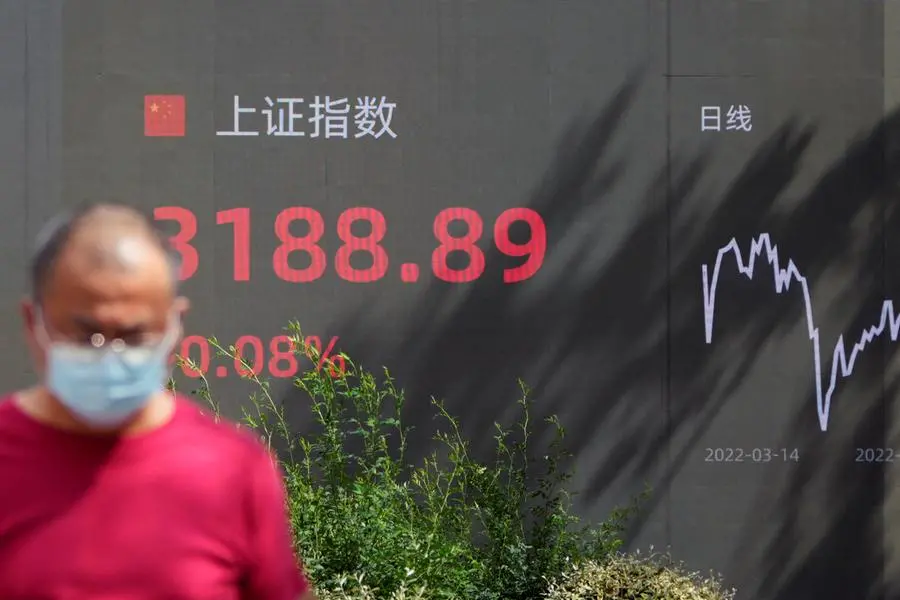PHOTO
China's benchmark index on Friday closed at its highest in four months, as foreign investors continued to buy Chinese shares for an eighth session on optimism that the world's second-biggest economy was set for a robust recovery in a post-pandemic era.
** China's blue-chip CSI 300 Index ended 1.4% higher, touching the highest level since Sept. 13, and the Shanghai Composite Index added 1%.
** Hong Kong's Hang Seng Index and the Hang Seng China Enterprises Index gained 1% and 1.1%, respectively.
** The CSI 300 Index rose 2.3% for the week, logging a third straight weekly gain. The Hang Seng benchmark also saw a fourth consecutive weekly gain by advancing 3.5% in the week.
** "There is mounting evidence that much of China's population has already been infected and that disruption is already fading rapidly," said Julian Evans-Pritchard, senior China economist at Capital Economics in a note.
** "Coupled with a wider shift towards more pro-growth policies, this points a reopening rebound starting this quarter and a stronger 2023 as a whole."
** China dropped its zero-COVID strategy last month in a policy U-turn, unleashing a wave of infections across the country while boosting its financial markets.
** Foreign investors bought a net 13.3 billion yuan ($2 billion) of China stocks via the Stock Connect Scheme on Friday, sending the total purchase amount to 64 billion yuan ($9.5 billion) so far this year.
** That compared with 90 billion yuan of China stocks they bought via the channel in all of 2022.
** There are also other growing signs that the end of the country's tough zero-COVID policy might mark the beginning of a long global march back into Chinese equities.
** Consumer staples climbed 2.8% to lead the gains on Friday, healthcare shares and tourism-related companies advanced 2% each.
** Tech giants listed in Hong Kong rose 1.5%, as sources told Reuters Chinese authorities are set to allow Didi Global's ride-hailing and other apps back on domestic app stores soon.
** Separately, China's exports shrank sharply in December as global demand cooled, and the weakness is expected to continue well into the new year as the global economy teeters on the brink of recession.
** "The weak export growth highlights the importance of boosting domestic demand as the key driver for the economy in 2023," said Zhiwei Zhang, chief economist at Pinpoint Asset Management, expecting more supportive policies to boost domestic consumption from the central government in March when the new government takes office. (Reporting by Shanghai Newsroom; Editing by Sherry Jacob-Phillips and Uttaresh.V)





















